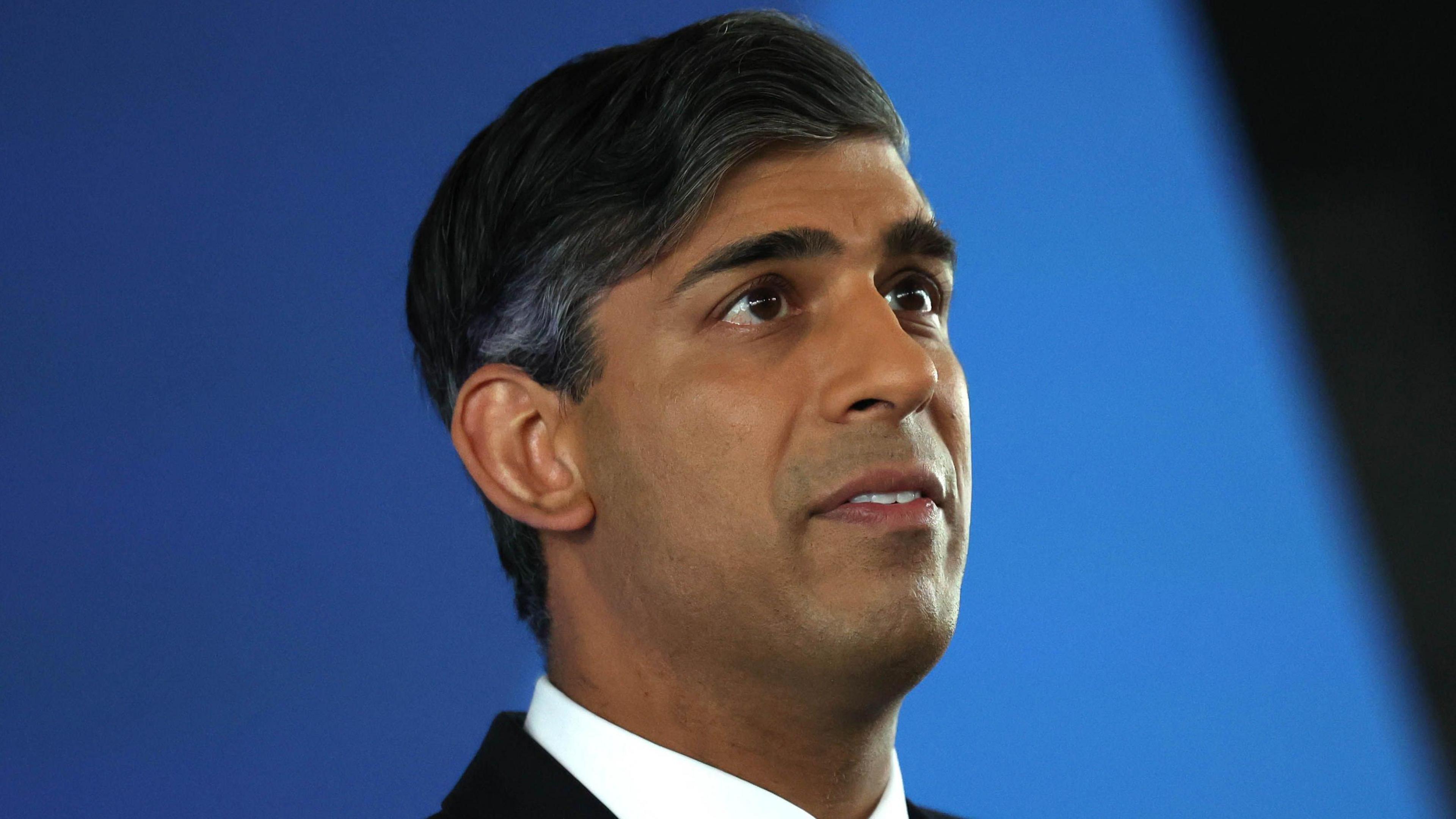Tories vow to reverse Wales' 20mph speed limit

- Published
The Conservatives have vowed to reverse Wales's 20mph speed limit policy, should they win the general election.
Tories say they will pass a law in Westminster to override the decision of Labour Welsh government ministers in Cardiff.
The party's manifesto said "local consent" would be required for 20mph zones.
First Minister Vaughan Gething accused the Conservatives of threatening an "enormous assault" on devolution.
The Welsh Conservatives said the party would try to seek the agreement of the Senedd for the legislation.
Conservatives also promised match funding for major road projects, such as the M4 relief road, should the Welsh government reconsider them.
Wales has had a 20mph speed limit in largely built-up areas since September last year.
The limit, imposed by the former first minister Mark Drakeford's government, sparked the largest petition the Senedd has ever received.
Changes have been promised how the limit works by Vaughan Gething's government.
Recent figures showed the number of people injured on 20 and 30mph roads fell by almost a third in the final quarter of last year.
Changes to 20mph speed limit policy promised
- Published18 April 2024
Speed limits in Wales are devolved, and the Senedd can pass regulations to change them. The Senedd can also create offences in areas that are devolved - i.e. controlled from Cardiff.
The Conservative manifesto says the party would use a Westminster bill to effectively reverse a decision of the Senedd and the Welsh government, through a "Backing Drivers Bill".
It said local communities would be given a "legal right to challenge existing zones".
If it happened it would be the first time a Westminster bill would be used to repeal a significant Welsh law.
Parliament is still able to make law in Wales but there is a convention that this is done with the agreement of the Senedd.
Other plans in the manifesto include a promise to cut national insurance by 2p by April 2027.
The Welsh Secretary David TC Davies rejected that the plan would undermine devolution.
Speaking to S4C's Y Byd yn ei Le programme, Mr Davies said law and order is not devolved "so we have the right, in my opinion, to look at what the Welsh government is doing and ask if that's something that's part of their responsibilities".
"The Welsh government must listen to the voice of the people in Wales - half of a million of whom have said they're unhappy", Mr Davies said, referring to the petition.
"I would suggest that the Welsh government is trespassing into reserved areas - for example, law and order and justice," adding, "I don't accept that this undermines devolution".

Rishi Sunak launched his party's manifesto on Tuesday
In first minister's questions in the Senedd, Welsh Labour leader Vaughan Gething told the Senedd that the manifesto "represents an an enormous assault on devolution in the drivers bill".
"It is an absolute disgrace," he said.
A Welsh Labour spokesperson said: "Our Welsh Labour Government has shown its commitment to listening to people on 20mph by reopening the consultation process, and just last week, we saw that collision rates in 20- and 30mph zones have fallen."
Plaid Cymru's Westminster leader Liz Saville Roberts said: "The UK government has no power over speed limits in Wales.
“The wheels are coming off Rishi Sunak’s campaign and he’s hoping that this latest populist tactic will get him back on track. It won’t."
The manifesto also promised match funding to the Welsh government to reconsider the axed M4 Relief Road motorway upgrade around Newport, the third Menai crossing and wider improvements to the A55 and the A483 around Wrexham.
Major road projects were scrapped in Wales as part of the Welsh government's roads review under Mark Drakeford.
Since Vaughan Gething has become first minister, Transport Minister Ken Skates has suggested that a third crossing could be considered,.
The Conservatives promised to fund rail upgrades at Padeswood to "unlock the potential for the wider improvements on the Borderlands line" and facilitate the electrification of the North Wales Main Line.
The manifesto says the party would deliver a nuclear power station at Wylfa.
How could the Conservatives scrap the 20mph law?
The Welsh Conservatives said they would seek the consent of the Senedd to pass the law, should they return to power.
The Westminster Parliament can technically pass any legislation to amend laws in Wales, although doing so could prove politically difficult.
The Senedd has a process where it agrees a motion whenever Westminster passes laws that impact its powers.
But it is not legally binding and the UK Parliament is not required to oblige when a motion is rejected.
A Welsh Conservative spokesperson said: "Labour's 20mph speed limit will hit the Welsh economy by billions when we should be taking bold action to kickstart the economy and create jobs.
"The UK government will work with the Senedd to pass a motion to show their support for the bill to apply to Wales, reversing Labour's damaging 20mph speed limit and devolving power further down to local people who know their communities best."
Control over speed limits was devolved to Wales in 2017.
What else does the manifesto say for Wales?
By Daniel Davies, BBC Wales News political correspondent
Devolution means some headline pledges in the manifestos of the main parties do not apply to Wales.
Responsibility for key public services – including health and education – are devolved to the Senedd.
The Tory manifesto commits to banning mobile phones in schools, something that would normally be decided in Cardiff Bay.
Devolution of the NHS means creating more dental appointments – something promised by the Conservatives – would be a decision for the Welsh Government.
Conservative policies to help people on to the housing ladder also only apply to England.
A Tory plan to get rid of Stamp Duty – the tax paid when buying a home – on properties up to £425,000 for first-time buyers does not extend to Wales, where the duty has been replaced by Land Transaction Tax.
The Conservative manifesto also promises to bring back a version of the Help to Buy policy. It ended in England last year, but the Welsh Government has kept it going, offering funding for people buying new-build homes.
On transport, money is on offer to fill potholes and resurface roads – but Welsh roads are maintained by local councils or, for major roads, the Welsh government itself.